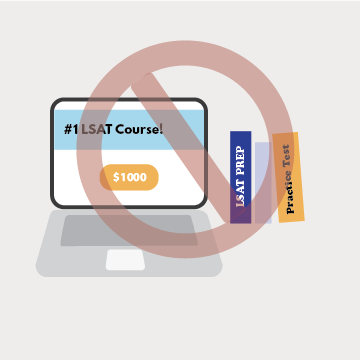Students, professors weigh cases for LSAT removal in admission
Jun 8, 2022
The Law School Admission Test, or the LSAT, has long been a requirement for students looking to pursue law school. Now, the American Bar Association is considering removing the requirement for future applicants, which could further impact the admissions landscape.
Jennifer Pahre, professor in Law, described the importance of the LSAT for both admissions and aptitude since the test’s inception.
“It’s used for law school to gauge how well a student might succeed in law school,” Pahre said. “But it’s also I think useful for students because they can then see if law school is a good fit for them. There is a strong correlation between LSAT scores and success in law school.”
Rebecca Ray, assistant dean for admissions and financial aid for the College of Law, echoed many of the same points that Pahre made, emphasizing the LSAT’s nature as part of a holistic review conducted by law schools.
Ray also noted that the Graduate Record Examinations, or GRE, is now accepted as a valid admissions test that meets the test requirement held by law schools, providing more flexibility for applicants.
Get The Daily Illini in your inbox!
After outlining the uses of LSAT, Pahre offered different reasons contributing to the consideration of removing LSAT requirements, citing equity as a key concern.
“There is uneven access to LSAT preparation programs across minority and disadvantaged groups,” Pahre said. “Students who have more financial resources have the ability to tap into a preparation methodology that can improve their scores and can find it easier to meet the fees required to take the test.”
While law schools claim to have a holistic approach to admissions, the statistics show that the top schools have admitted students scoring the highest percentile on the LSAT. There has been a heavy emphasis on scoring well on the LSAT to the point students may spend entire summers or an entire year preparing for the exam.
As with other graduate-level standardized tests, LSAT prep has become an industry of its own, with specialized courses and tutors.
Alexandra Nevarez, senior in LAS, is on the pre-law track. Like many pre-law students, she is involved in student government and holds leadership positions in multiple RSOs. She is also doing research and tutoring within her department to strengthen her application. On top of that, Nevarez started her LSAT preparation at the beginning of the year.
“I was doing 15 (hours per day) during the school year,” Nevarez said. “My goal when I start again this week, I’m gonna do like 30 to 35 full time. I wish it wasn’t so much to the point where all that matters is your LSAT.”
The LSAT is not only time-consuming but costly as well. For Nevarez, her main expenses are the LSAT Max courses and tutoring services, which typically start at $1,000. Due to her position as vice-president of Kappa Alpha Pi — a pre-law professional fraternity — Nevarez was able to access prep courses for free. She still spent $250 for the PowerScore Bibles and other resources.
After witnessing firsthand the costs that the LSAT can carry, Nevarez spoke in favor of making the LSAT optional for law-school admissions.
“I definitely think (removing the LSAT from admissions) is a good step to help even the playing field, just because these preps are ridiculously expensive,” Nevarez said. “I’m a first-gen college student, and I had no clue what I was doing. I personally would not have survived without the help of the pre-law advising office. I was fortunate enough that our University has these services.”
Even though there are ways to waive the fees associated with the test, Pahre noted the process for doing so can be cumbersome. In addition to uneven access to LSAT preparation programs, other factors that Pahre mentioned included inequity across different minority groups and general test-taking abilities.
“There (are) also some studies that show that … it’s not an even test across all different types of minorities,” Pahre said. “That creates problems for schools that are trying for strong tests and diverse candidates, and, you know, there (are) always people who just don’t test well but might actually do well in a law school environment.”
Nevarez shared the same sentiment and acknowledges that she isn’t the strongest test taker, emphasizing that she believes one score should not define her abilities.
“Once you get to a certain point of LSAT prep, you realize it is all pattern and repetition,” Nevarez said. “They ask the same 15 kinds of questions. So once you realize that pattern, you can hack the LSAT. I don’t think it’ll show how good of an attorney you’ll be.”
Ray said the impact of the potential removal of LSAT requirements remains difficult to gauge since the final language of the proposal for removal is not confirmed.
According to Ray, the earliest the proposed change could go into effect is February 2023. Due to this timing, Ray also stressed the importance of still taking the LSAT and GRE for those looking to apply during the next cycle.
Nevarez also expressed her hope for the proposal to go through since it could lead to greater diversity in the law field.
“I really hope that it’ll help more underrepresented communities go into law school,” Nevarez said. “I think it’s, like, less than 2% of all practicing attorneys are Latina women. I hope that it goes through so we can have more people represented in the legal field.”






